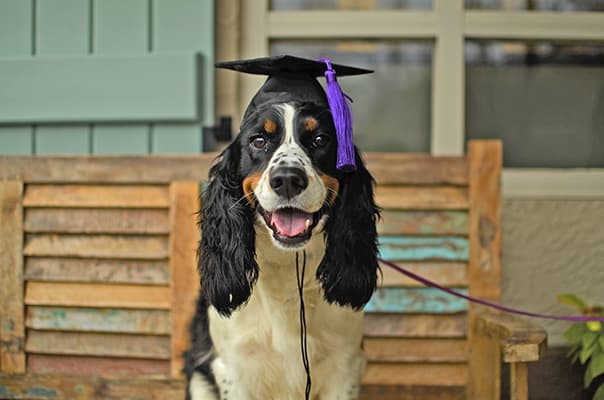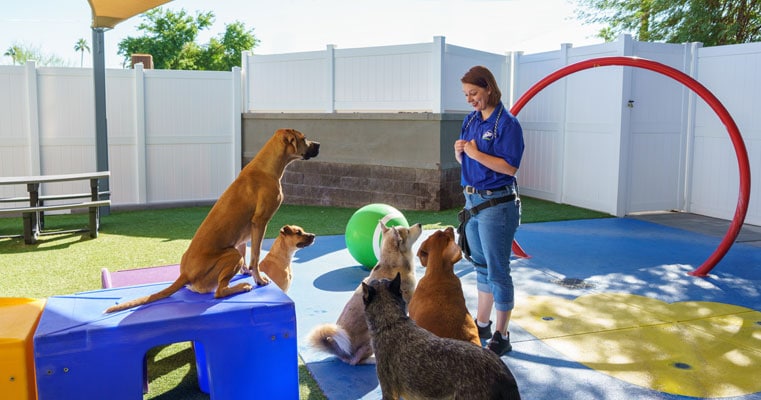The Ultimate Guide to Dog Training Charlotte: Methods for Success
The Ultimate Guide to Dog Training Charlotte: Methods for Success
Blog Article
Unlock Your Pet's Prospective: Proven Pet Training Techniques for Success
Reliable canine training is a nuanced process that hinges on recognizing canine habits and using medically backed techniques. By incorporating positive support, developing clear commands, and prioritizing socialization, dog owners can grow an efficient relationship with their family pets.
Understanding Canine Actions
Understanding pet habits is important for reliable training and fostering a positive relationship in between pet dogs and their proprietors. A thorough understanding of canine body movement, vocalizations, and social interactions is vital for acknowledging their requirements and feelings. Pets communicate primarily via non-verbal hints; for instance, a wagging tail may show enjoyment, while pinned ears can signal anxiety or entry.

Additionally, ecological elements play a significant duty in shaping a pet dog's actions. Modifications in routine, brand-new environments, or the presence of unfamiliar individuals can result in tension or anxiety in canines. Acknowledging these triggers enables proprietors to alleviate unfavorable responses and establish ideal training strategies.
Inevitably, a deep understanding of pet dog actions lays the foundation for successful training techniques, boosting both actions and the total bond in between the canine and its owner. dog training charlotte nc. This knowledge is crucial for cultivating a well-adjusted, happy canine companion
Favorable Support Strategies
Reliable training counts greatly on positive reinforcement strategies, which have actually been shown to yield considerable lead to forming wanted actions in dogs. This method includes awarding a dog for displaying particular behaviors, thereby raising the chance that these behaviors will be duplicated. Incentives can take numerous types, including deals with, praise, playthings, or play, relying on what encourages the private pet dog.

It is vital to gradually terminate benefits as the dog learns the actions, transitioning to intermittent support. This technique keeps the behavior gradually while preventing reliance on consistent benefits. By concentrating on favorable support, fitness instructors can cultivate a relying on relationship with their canines, promoting a cooperative and healthy and balanced training atmosphere that improves general obedience and performance.
Developing Constant Commands
An essential aspect of effective pet training is the establishment of constant commands. Uniformity in commands is essential for reliable interaction between the fitness instructor and the pet dog. When commands are uniform, pets discover to link particular words with wanted habits, which accelerates the training procedure and enhances understanding.
To establish consistent commands, it is necessary that all household members use the exact same terminology and motions. If one person utilizes "sit" while an additional says "rest down," it can develop complication for the canine. Select clear, distinct words for commands and make certain everybody associated with the dog's training abides by these selections.
Furthermore, repetition is crucial. Reinforce commands with regular practice, making sure that the canine receives ample opportunities to react appropriately. When a pet efficiently adheres to a command, prompt positive support ought to adhere to. This might be in the type of deals with, praise, or playtime, strengthening the link between dog will not walk on leash the action and the command.
Lastly, be individual. Developing regular commands takes time and initiative. With dedication and quality, you will help your pet dog create a strong understanding of assumptions, inevitably leading to a mannerly friend.
Socializing and Direct Exposure
Socializing a pet is essential for cultivating a well-adjusted and confident friend. This procedure includes exposing your pet dog to a variety of settings, people, and other animals to establish their social abilities and flexibility. Early socializing, preferably between the ages of 3 to fourteen weeks, is vital, as it prepares for a pet's future actions.
During socialization, purpose to give favorable experiences in various settings, such as parks, active streets, and homes with other family pets. Introduce your pet dog to different stimuli, consisting of sounds, views, and smells, ensuring that each encounter is gratifying. This direct exposure assists alleviate anxiety and anxiety, paving the method for a more resistant dog.
Engaging in regulated team play sessions with other dogs can additionally boost social skills, showing your animal suitable interactions and limits. Focusing on socialization will significantly contribute to your pet dog's general joy and behavior throughout their life.
Conquering Common Educating Difficulties

An additional frequent concern is diversion. Pet dogs may battle to focus in busy or unfamiliar settings. Slowly desensitize your dog to diversions by starting training in a peaceful setting and slowly presenting more stimulations as they become teach dog to bark efficient (dog training charlotte nc). Favorable reinforcement methods, such as deals with and praise, can preserve inspiration and emphasis.
Furthermore, behavior concerns like jumping or excessive barking can come to be irritating. Address these by instructing alternate habits, such as resting calmly when greeting guests. Uniformity and perseverance are crucial; strengthen preferred actions continually and avoid abuse, which can lead to complication.
Lastly, recognize that each dog is unique, and training timelines may vary. Dressmaker your approach to your pet's specific demands, and look for specialist advice if essential. With willpower and the appropriate approaches, getting over these obstacles can bring about a trained, delighted canine buddy.
Final Thought
Finally, unlocking a canine's potential demands a thorough strategy that includes an understanding of canine habits, the application of positive reinforcement strategies, and the facility of consistent commands. Early socialization and direct exposure to varied atmospheres additionally improve a dog's flexibility and self-confidence. By attending to typical training difficulties with tailored approaches and persistence, a harmonious and cooperative relationship in between pet dog and trainer can be promoted, ultimately causing a mannerly companion qualified of great post to read thriving in numerous scenarios.
Reliable pet dog training is a nuanced procedure that hinges on comprehending canine habits and utilizing clinically backed techniques.Understanding canine behavior is essential for effective training and cultivating a favorable relationship in between pet dogs and their owners.Efficient training depends heavily on favorable reinforcement strategies, which have been revealed to produce substantial results in forming desired behaviors in pet dogs. When commands are uniform, canines find out to link details words with wanted habits, which accelerates the training process and improves understanding.
In conclusion, unlocking a dog's prospective demands an extensive technique that includes an understanding of canine behavior, the application of positive support methods, and the facility of regular commands.
Report this page